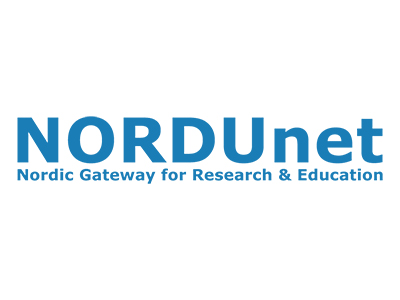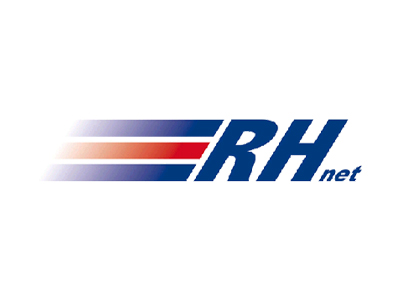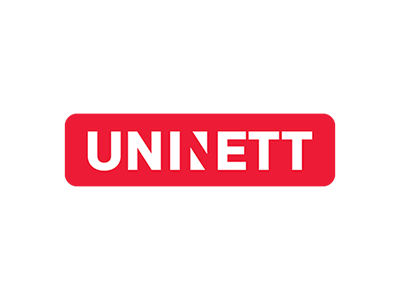
Smooth connectivity for Nordic academics
Ever experienced annoying delays in sound and video during an online-conference? In a time where use of Zoom and other e-meeting tools has spiked due to COVID-19 lockdown, most will recognize this situation. However, users at universities in the Nordic countries have an advantage.
“The academic institutions in the Nordic countries are all connected to the network supported by NORDUnet and the NRENs (national research and education networks, ed.). So, when you are at your institution you will always have smooth connectivity. Further, you will be able to take that advantage home if you just download the eduVPN app,” says Lars Fischer, Strategy & Policy Officer at NORDUnet.
The eduVPN app – “edu” for “education” and VPN for Virtual Private Network – allows the users to logon to the NREN connection just like if they had been at their institution. The app is available to the academic users in Norway, Iceland, Finland, and Denmark.
Limiting hand-overs in the network
Why do delays in sound and video occur? The main reason lies in the various routes which the IP traffic takes in different situations. If a video-conference is hosted by the platform of a commercial ISP (Internet Service Provider), this provider will only transport the signal during the first part of the route. Onwards, the traffic may be passed through the networks of several providers. The user will be unaware of these hand-overs, but will notice them indirectly as delays in communication.
“Every time you introduce another “man-in-the-middle”, you will also introduce additional delay. The longer the distance from the other e-conference participants, the larger becomes the problem. But when you are connected to an NREN, we will take your traffic a long way within our own network,” Lars Fischer explains, adding a recent example:
“The other day I was in a video-conference with colleagues in Australia. Due to the time difference, the meeting was scheduled late in the evening CET time, so I attended from home. As I switched from connecting through my local ISP to the NORDUnet network, the delay in communication immediately fell from 320 ms to 280 ms.”
Saving 40 ms may not sound like a lot, but during a long video-conference with many messages going back and forth, the savings ad up and become significant.
Avoids fluctuations in delay time
The reason for the improvement lies in the traffic taking a completely different route. The local ISP was sending the Danish-Australian communication via the United States. NORDUnet and other European NRENs have jointly invested in a 100 GB direct link from London to Singapore. As the Australian NREN AARNet has connected to Singapore, Lars Fischer was able to enjoy a much more direct route for the communication by switching to his NREN connection.
“Further, the improvement does not only apply to video conferencing. You will also be able to surf the website of the other party with less delay, and to download data faster. And finally, while some delay cannot be avoided when you communicate over a long distance, at least you obtain a steady level by connecting to the NREN. If you are connected through a commercial ISP, you will often experience jumps in delay time, possibly because the route of the traffic is suddenly shifted. This can be highly disturbing.”
Lars Fischer emphasizes that he is not out to criticize commercial ISPs:
“The commercial ISPs have a high quality. However, while they are optimized to serve other purposes such as Netflix streaming, NRENs are created solely to meet the needs of academic users.”
Irrational routing creates delay
The current lockdowns in many countries due to COVID-19 have not really changed the conditions for connectivity, but the situation does highlight some of the present drawbacks in the global networks.
“Many foreign students chose to travel to their home countries to spend lockdown there, while still continuing their participation in Nordic classes through distance learning and video-conferencing. Here, they often depend on their local commercial ISPs. For instance, we often see Asian students having their traffic routed over the United States, which is clearly not rational,” Lars Fischer illustrates.
During lockdown, most academic users in the Nordic countries are working from home. Thereby they will not have the automatic smooth connectivity which they enjoy at their institutions. In this situation, eduVPN comes to the rescue. Development of the app began before the COVID-19 outbreak, Lars Fischer notes:
“Being able to connect to your NREN just like if you were at your home institution is just a very attractive thing. This is already possible for Nordic users in several non-Nordic countries, and we are constantly engaged in dialogues with more countries to join the system. The COVID-19 situation may have highlighted the value of the solution, but it will definitely remain highly attractive in the future regardless of the current epidemic.”
For more information please contact our contributor(s):





